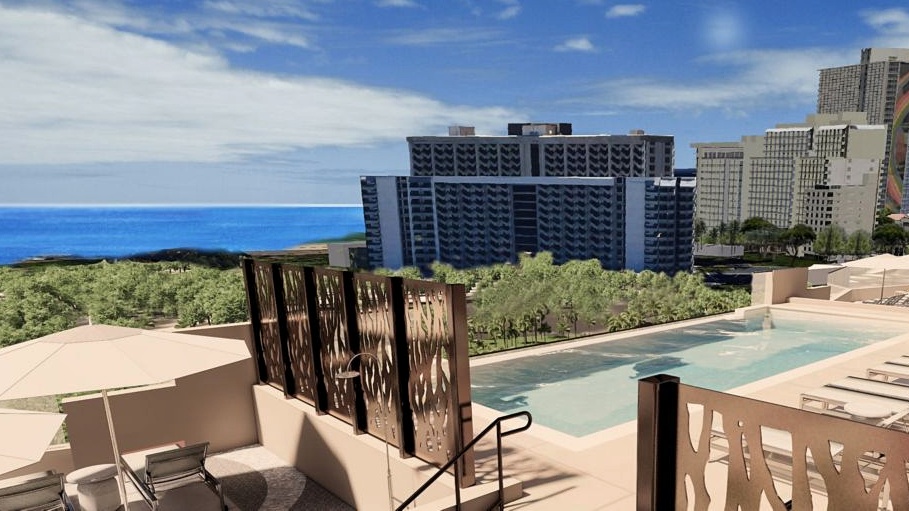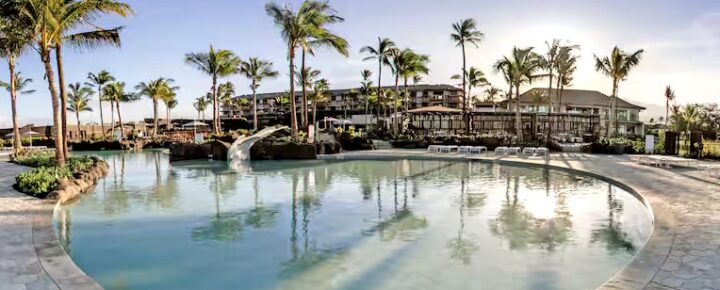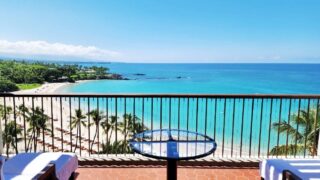Hawaii’s timeshare market, traditionally popular among retirees, is drawing an unexpected crowd—Millennials and Gen Z, which covers people aged 43 and under. With the opening of Marriott Vacation Club Waikiki, the first new timeshare in seven years, launching at over 90% occupancy, younger generations are showing surprising interest.
But what does this shift say about the evolution of travel, and how does it challenge both the expectations of timeshare buyers and Hawaii residents alike?


Hawaii’s unique timeshare appeal is timeless.
Hawaii’s blend of cultural and natural appeal is a major draw for these younger owners. Timeshare properties are transforming to meet new travelers’ “experience-first” mindset. This approach encourages visitors to see their travel as a pathway to personal enrichment, cultural appreciation, and lifelong memories rather than simply a getaway.
Many are attracted by the ease of budgeting for prepaid vacations, which makes these timeshares feel like stress-free escapes. However, alongside the appeal, timeshares come with limitations that can clash with Millennials and Gen Z’s value for flexibility.
Unlike hotels or short-term rentals, timeshares can sometimes be inflexible, depending on the plan. They have designated usage periods and steep resale difficulties. For many, the long-term challenge of making such a rigid commitment work may temper the appeal.
New ownership and Hawaii’s economic resilience.
Hawaii’s tourism sector has faced a challenging recovery. This type of ownership has shown surprising resilience, with timeshares making up nearly 15% of Hawaii’s lodging. Timeshare occupancy rates remain high, with repeat visitors often drawn back by a feeling of connection to Hawaii.
Yet, for some, the timeshare model presents a mixed picture. Timeshares provide a steady flow of visitors, which can help local businesses avoid the volatility of tourism trends. At the same time, the resources required to support ongoing visitors may strain local infrastructure, raising questions about how sustainable timeshares are for Hawaii’s long-term needs.
A vacation option for the new “experience” generation.
Today’s younger buyers prioritize experiences, and timeshare companies respond with offerings beyond typical resort fare. Many properties now integrate cultural programming highlighting local traditions, offering a taste of Kamaaina life. This setup appeals to those seeking immersive experiences rather than traditional tourist activities, presenting timeshares as an experience-driven alternative to standard hotel stays.
But it’s not without limitations. As flexible, spontaneous travel becomes a defining trait for Millennials and Gen Z, timeshares’ rigid schedules and long-term commitments might not fit every lifestyle. For Hawaii residents, the rapid growth of these properties raises the question of whether the focus on curated experiences can coexist with local needs and the preservation of Hawaii’s unique environment.
How Hawaii Tourism Authority views timeshares.
Timeshares can be part of a sustainable tourism approach emphasizing longer stays, economic resilience, and a deeper visitor connection to Hawaiian culture. However, HTA also recognizes the importance of balancing this growth with carefully managing Hawaii’s resources and housing needs. The HTA’s evolving relationship with the timeshare industry reflects its dual goals of promoting tourism while preserving the islands’ quality of life and natural beauty for residents.
Are timeshares a promising future or just another trend?
The rise in younger timeshare owners hints at a new era for Hawaii’s timeshare market, yet the longevity of this trend remains uncertain. Timeshares offer a way to “own” a piece of paradise and make vacationing easier for those who love returning to the islands. Still, high upfront costs, ongoing fees, and resale potential may limit their long-term appeal, especially for younger buyers who value flexibility.
What are your thoughts, including if you’re a timeshare owner, current or past?
Lead image Maui Bay Villas.
Get Breaking Hawaii Travel News







Millennial here. During the tail end of COVID-19 I bought a time share deeded in Las Vegas but I am able to book stays wherever there is a Travel and Leisure location. I paid it all down. I do not recommend borrowing money to buy a timeshare.
Having the flexibility of not being locked in to a specific location was the biggest thing and able to use it to send my parents on vacations.
Yes, maint fees did increase but so did everything else. %wise food increased more than my maintenance fees here on Oahu
If you are getting roped into a timeshare presentation they usually provide you with some compensation for your time like a 3 night stay, gift card, etc. Do Not take their first offer. They usually have a maximum to get you in. In a recent presentation, I was able to negotiate $150 gift card when the initial offer was $75. Even though I wasn’t planning to buy another timeshare. $150 for an hour is pretty good. Just stay firm and don’t buy if you going to milk the system.
Timeshares, when properly planned and utilized, can be the best long-term vacation money you’ll spend. Most are now typically sold using the “points” system rather than “weeks”. This makes for a much more flexible ownership/vacation experience. One of the best features of owning a timeshare is the flexibility to use it at different resorts with many ownership companies having properties around the world. The one little secret, the hard and fast rule, is to Never, Never, Ever buy your points/weeks directly from the resort. Ever. There are many secondary-market sales sites on the internet. We bought one for a fraction of the price that it would have sold for at the resort. We used it for about 12 years then, quite easily, sold it at a small profit. The key is to not overpay and to factor in the yearly maintenance fees as your vacation cost. They work great if you know what you’re doing.
Marriott’s timeshare program allows for flexibility due to its worldwide properties. I originally bought Marriott resale properties and found a way for Marriott to “grandfather” the “week” usage into points Or I can go back to their Kauai properties, where I originally purchased. To do this, I bought points and one condition I made to buy points was they must allow me to trade in yearly “weeks” to go to other properties.
Millennials have the highest average debt of all the generations, averaging $42,000! So this isn’t a big surprise. With Gen Z catching up to them and being Uber influenced by all the “fabulous lifestyles” of those they see online. What will be interesting is what they will do with these properties once the debt catches up.
Two things tell me all I need to know about timeshares. First the number of people that they pay to stand full-time along the Kaanapali beachwalk to see if they can attract passersby to sit through their timeshare presentation. Feels me there is a lot of money to be made in selling them. Second the number of commercial I hear on national sports talk radio from companies whose sole business is helping people get out of the timeshares they own. Tells me there are a lot of people trapped in an “investment” that they can’t get out of.
We have been timeshare owners since 1993 on Kauai. We own two deeded properties on both the north and south shores. Although we live in North Carolina. We go every year and consider ownership a very good value.
I was taught three rules in life, from when I was a small child:
1. Never become an alcoholic.
2. Never become a drug addict.
3. Never buy a timeshare.
True dat.
It makes almost no sense to buy a timeshare when you can simply rent a unit from a timeshare owner. It’s way less expensive and no long term commitment, compared to buying one then paying yearly fees.
There are many internet sites where this can be done, safely and with little hassle. A lot more flexible as well. I’m a believer.
How many timeshare owners are happy with their contractual obligations 2-3 years after they sign on?
Please read an important article in the real estate section of today’s New York Times showing major problems with buyers who bought into vacation clubs and greatly regret their decision.
My advice is simple: Do Not buy a timeshare! We own several and the maintenance fees increase each year and the service provided decreases! They are not good investments. They make it sound very easy at the presentations but leave out some important details about fees and expenses.
I’m a timeshare owner, and have been for over 20 years. I bought into one with ‘flexible’ scheduling, not locked into any week. I enjoy my visits, patronize local establishments and wish I could afford to buy a place to live half the year or more, but, as most of us out here know, ownership of a house or condo is out of reach, and will continue to be the reality of HI life. Don’t judge timeshare owners for wanting to enjoy visiting a place they would like to live, and who are not trying to deprive locals/native Hawaiians of a home. They just want to visit and appreciate the islands, and enjoy the little time they can afford, and find it frustrating that they too get blamed as part of the housing shortage problem.
After listening to the time share “scheme” (just calculate the “real” cost of the property you are “sharing” with strangers), I bought a 1BR condo for $293k in 2003 that I rented out long term before using it myself in the winter months for 10 years before moving here permanently. The price of my condo doubled in 3 years and tripled during the Covid years when people realized they could work from “home” (whereever that may be). I personally think that was crazy and prices surely went down since then, but then rent prices went up! You see the benefit in buying something you own vs a timeshare resort? That said, I don’t blame timeshare owners for the housing shortage. I am saying they could do better if they want to spend more time here….(disclosure: I am a Realtor)
I so regret not having the funds to buy pre-Covid! I own a “timeshare” on the big Island but we own a specific month and a specific home we stay in each time! I love it but airfare and rental cars are making it an expensive month!
I have to confess to a total lack of knowledge about timeshares. I understand the concept but have no idea of just how long owning one entitles you to stay for your share of the unit per year. Is it a month? 2 months? What’s the average cost per week? I’m in town an average of `11 to 12 weeks a year and I average a weekly lodging cost of ~ $1500 to $1800 a week depending on the season.
I’m not picky about room amenities though. For me it’s just someplace to lay my head, store my stuff, and take a shower… Is this in the ballpark for an average timeshare stay of that length?
Best Regards
Timeshares are usually sold in 1 week per year increments, and depending on the location of ownership, the cost for the deed for that 1 week can be $40-60K. There are also annual maintenance fees that are often $1-2K annually.
These are sold by timeshare companies as being “assets” to pass down to your kids–you usually can’t sell them at all, and sometimes can’t even give them away due to the annual fees and limitations of booking. (Ask me how I know…)
$40 to $60K for a Week???? Plus the maint and taxes? Wowza! Ummm…. Note to self: Cross Time Share off shopping list… Forever.
Thanks.
The $40k to $60k is what you would have to pay (or take a loan for) so that you can use the timeshare for week for the rest o your life! However, what they fail to say is the maintenance fees will go up …and you pay for everyone else.
This whole discussion on timeshares is getting confusing. My take is paying $50k+ to the developer makes zero sense. You will get a fraction back when selling. Buying resale and paying $4k or less Can make a lot of sense for certain types of travel. For me, buying resale made complete sense and the numbers work. The timeshares I bought I can turn around and sell for what I paid.
For the amount of time I spend in HNL, It simply wouldn’t make financial sense to purchase enough time shares to accommodate several months. I’ve crunched the numbers and I’m right at the point that renting a small year round studio in the Ewa end of Waiks is making sense financially along with purchasing a small vehicle and leaving it there (properly stored of course). Probably the next move I’ll make.
Best Regards
I bought Marriott resale through ebay for $3,500 (1 bed/1 bath, every other odd year) and $5,200 (2bed/2 bath, every other even year). Yes, maintenance fees average $1,200/year. The 2 bed was definitely the better deal. Shop around if it interests you
So you pay 13K for a vacation every other year? Just for accommodation? How is that a deal?
The first week that I bought in Honolulu located on Beach Walk I paid 5 grand for. It’s a 1 bedroom 2 bath with kitchen and living room. Sleeps 4. Currently you can buy resale units in the same resort for half the amount. Maintenance runs $ 1,400 a year.
In Maui my first every other odd year cost me 4,800 but it’s a 2 bedroom 2 bath full kitchen and living room. My second every other year week in the same resort I paid 500.00. All are floating deeded units.
It’s a learning process. Once you get into the first timeshare process and begin to use it, you then will learn where the deals are. I have to admit I got lucky getting in cheap. In Hawaii my wife and I for many years took advantage of the Free Breakfast and premium be it 200.00 in cash, or a sunset cruise, or 2 tickets to the PPC in exchange for 2 hours of our time. We learned all about the point system vs weeks. ( Our opinion a purchased Week is the way to go )
I’m a retired baby boomer. When I talk to my fellow retirees, they inevitably tell me that their biggest regrets are buying timeshares or RV’s.
Hi Guys, I almost bought a timeshare at Maui Westin Nanea. First hint was I left my credit card in the room. Second was finding out my family would be responsible for the money if I were to die. That was a deal breaker for me as I wouldn’t want to saddle anybody with my debts. But they really had me ready, set, go to buy. But seeing how the younger generation has been very advanced educationwise and tech savvy, I can see the appeal. It is also Very difficult to sell and get your investment back. The fees are pretty high also for maintenance and ownership. I did enjoy the “special deals” to stay at the resorts though. It gave me a chance to vacation in a way I was not accustomed to and that was very nice.
Hi DebraM.
Thank you and everyone else for sharing your experiences with Hawaii timeshares.
Aloha.
So interesting! Our kids range from age 38 to 43 and they have no interest in inheriting our timeshare properties, let alone buying new timeshare for themselves. And I don’t think it makes sense for them to own timeshare either. Unlike us, they don’t want to go to Hawaii every year, or anywhere else every year, and they know from our experience that if you want to go somewhere different, it’s not always that easy to arrange. Whether or not buying timeshare is a “good investment” depends on so many things. For us, it’s paid off – our buy-in 20+ years ago was cheap compared to prices today, and we pay about $285/night based on maintenance fees for a one bedroom with full kitchen and washer/dryer. Compared to $800/night for a small hotel room, I think it’s a great deal.
What does it show? It shows the Hawaii’s timeshare hucksters have found a new generation of gullible marks to fleece.
I don’t know anybody who has not regretted their timeshare purchase. Having said that, Hawaii timeshares seem to be the least regretted ones.
At one time we owned three timeshares on Maui. It was nice till we couldn’t use them when we wanted,till the ” guaranteed” maintenance fees kept going up each year,till we found out what a scam they were! Took a lot of time and our money to get rid of them!!!
That was my friends and clients experience as well
Ok, now you know someone. Me! Zero regrets. As I said in my comment, you have to learn how to buy & use them. I am so better off than other options.
I agree with Gary – zero regrets about buying Maui timeshare. For some people, as mentioned, buying property might be their best option, especially if you want to live in HI for several months. We don’t – too far from our grandkids. And a lot of people don’t want the hassles of ownership, or having to do STR for the months they aren’t there. Also, given the potential issues with Airbnb/VRBO etc. in Hawaii re housing shortages, no, it’s not necessarily going to be easy to rent an Airbnb with carefree abandon. I’m very glad we own Maui timeshare.
I have owned my Disney time share since 2003. I have been many places. Including Aulan’i in O’ahu Quite a few times. It would have cost me over $10000 for two weeks to stay there. My time share even with its dues payments has more than paid for itself and Disney is one of the very few that I could sell today and get my initial investment back.
Can’t think of a worse way to spend your money. Too many people still think of timeshares as investments when they’re nothing more than money pits. I remember visiting Maui during the financial crisis in in 2008 and seeing a long list of timeshares for sale. Many were being offered for no money by people desperate to be rid of them so they wouldn’t have to pay the maintenance. And if people want to experience Hawaiian culture, probably the last place they should go is Waikiki. If that was your first impression of Hawaii, would you ever go back?
I’m a firm believer in owning a Hawaii Timeshare as a way to reduce Hawaii vacation costs
I could easily spend over 50 bucks for a breakfast for 2 in an average restaurant on a single meal or I could spend the same 50 bucks for groceries at Walmart and have at least a weeks worth of breakfast eating in my timeshare, without having to wait to be seated, & poor service
I could spend over $ 800.00 a night for a 1 bedroom 1 bath 450 sq ft hotel room in season or I could spend $ 200.00 a night in the form of annual maintenance and tourist tax for a 2 bedroom, 2 bath, living room and full kitchen. Further if I want a change from my resort in Hawaii then I can open a Timeshare book, look for what is available and then trade for some place else in the world for just a small fee of less then $ 400.00. Trading an Hawaii timeshare carries a lot of clout
I have more to say but ran out of space
Assuming you don’t work in the timeshare business, how long have you owned one? Also, buying your groceries at Walmart isn’t exactly helping the local economy. In addition, timeshares in Hawaii are owned by huge corporations (Marriot and Westin are now one, and the Hilton now has timeshares). Obviously, they would not be in the timeshare business if they wouldn’t make huge profits…unfortunately, that profit doesn’t go to the timeshare owners or employees.
I’ve owned since the middle 1990’s. I bought on the secondary market. I own one week every year in Honolulu and two weeks every other odd year in Maui. I bank the even year week in Honolulu and then use it the following year so I can have a full a full month in Hawaii. Two weeks in Honolulu followed by two weeks in Maui. Both of my timeshare are from the little guys but still are part of Interval International. I originally started with the purchase in Honolulu going for one week there and trading the banked week into Maui. Then purchased the additional every other odd week in Maui to extend my vacation time and only 4 years ago but yet another Maui week at a super deal price. All my weeks are floating giving me wonderful flexibility and none are on the points system.
When it comes to food shopping I go where I find deals. Be it China Town, Walmart or Costco. Mostly I buy what happens to be on sale.
Good on you! The people that you see on here complaining about their timeshare or the people that “know someone” that regret it are typically people that don’t plan things very well. The only reason one would regret buying one is if you then do not use it. We bought on the secondary market as well and it was one of the best and most flexible vacation options you can buy.
Or you could do what I do every time I go to Hawaii and get an Air BnB for $200-300 a night with plenty of space and amenities. And when I leave, I’m not paying a dime for maintenance, fees, surcharges, management expenses, etc. When I’m done, I’m done. With a timeshare you are never done.
You are so correct. We’ve had a timeshare on the north shore of Kauai at Princeville for over 30 years. Low rise, Hawaiian style two story with spectacular views.
Never rent or trade it out. Flex time and go once or twice every year. Bought it for 8K per week years ago.
Timeshares are never a real estate investment. But even with recent increases in annual maintenance fees it works out to $250 per night for a lovely two bedroom two bath 1K square foot condo with all the amenities, and world famous Na Pali coast/Hanalei Bay views. That costs over $1000+ per night at the former St. Regis, now the 1 Hanalei Hotel. Do the math, it’s a good deal when compared to a luxury hotel.
Timeshares work out wonderfully if you have decided to travel to your Hawaiian timeshare regularly ; I bought into every other year in 2001. Loved the SOK and was able to add another week every other year ( so two weeks together ) . Of course maintenance fees increased ; if they don’t the units get worn and run down ! Salary of employees and taxes always on upward trend . But in defense – have you checked prices of suites in hotels ? ( timeshares are huge -2nd; 2 baths, large kitchen, living room ; dining room ; with all accessories ( washer / drier) . Have beach front property , great views . Have never missed a 2 week time .Family and friends willing to come . Try booking a suite in a hotel on the beach !
Baby boomer here. We would never be able to afford Hawaii if not for our (Hilton) timeshares. Timeshares can be a very bad experience, or if you know what you are doing, can be the best thing ever. We bought resale and will not have a problem selling when the time comes. Our maint fees are Waaaay less than what we would have to rent for staying at a similar property. Plus we have a full kitchen and we know there will be no surprises (ie dirty). We go to the Big Island 2x every year.
“We bought resale and will not have a problem selling when the time comes.” Unfortunately, I doubt that, especially when they keep adding new ones…Have not heard of anybody selling their timeshare at a profit. Actually, the people I know who tried to sell them did so at a huge loss (at the Westin, right here in Kaanapali)
Eva B: Bingo! It’s been going on for years. The “closers” (usually 2 or 3) get your initial payment. It’s gone forever. The only thing that’s new is this group of buyers that have no idea what they are doing. It’s not surprising. These are the same people that buy cars solely on the size of the monthly payment. No regard for the fact that the car will cost 3x the sticker price in the end. They obviously have never had a parent or friend sit down with them and help them understand how these pyramid schemes really work.
You’re not paying attention to his comment. He stated that they bought “resale”, meaning that they didn’t pay anywhere near retail for their timeshare. That is the key factor. Never, never, never buy retail from the resort. Buy at a fraction of the cost on the resale market. Quite frankly I’m amazed more people don’t do it that way. It’s an amazing value. Our annual maintenance fees are right at $1200 per year. The points that we own would rent for close to $2000 for the week. We did exactly the same thing. Sold it 12 years later at a small profit but “profited” greatly over the time we owned it. You simply don’t know what you’re talking about, that’s all.
We are timeshare owners on Maui- Westin Nanea. We are very pleased with our ownership and go to Maui every year. it’s a gorgeous location, great pools and service. We always invite either our kids and grandkids, or friends to go with us. We’ve always been able to book whenever we want to go-usually whale watching season. There are lots of families around, so it’s not like an adults only resort (which can also be very nice!) We love the nice big kitchen, living room and lanai and the rooms with washer and dryer are always very clean and comfortable. Our kids are comfortable with inheriting our timeshare since they also enjoy it so very much. We paid cash for ours so it’s just the annual maintenance fee, which we feel is like paying property tax. it’s still cheaper than staying at a nice hotel for the same amount of time and we do cook breakfast and some lunches and dinners, so there’s a good savings there also. To each his own! We love our timeshare!
I’vs owned a timeshare since 2008; originally w/Starwood for 2br/10 days in Orlando where we enjoyed WDW & UO several times with our teen kids. We banked a year, a couple times for trips to Kauai & Maui. In 2019 we were able to exchange our Orlando to Westin Nanea 2br/10days or 1br/17days at full value. Wife and I go to Maui every 8mos to enjoy “the seasons”; especially whale season. Our now adult children join us every couple years. We’ve even used Interval Int for Orlando when the “kid” in all of us wants to play! Our MF are $3898/yr which we treat as gotta pay-to-play fee, A 2br at Nanea is $767/nite +$30/nite parking(Expedia) my MF cost is $390/nite (free park) = $300/nite savings. We love our timeshare (paid-off within 12 mos of signing), but we can afford to pay-to-play; no mortgage on home. Timeshares are not for young adults just starting out in life. Their commitment should be career, family, and finance.
Looks like another article that could be written about many demographics. I didn’t see any actual data. The location is probably attractive to that age group so that’s a plus. Like certain “spring break” destinations. The same could be said for most STR’s and different demographics. And it’s quite common for visitors to return to an STR complex or even a particular unit every few years. They find other families or ‘boomers frequent it (their demographic) and return. You are right to mention the restrictions time shares. Life is full of mistakes and lessons learned. I personally know less than a handful of full of friends that have (and openly talk about) time shares. Most of the positive ones frequently trade their slots for other locations etc. It’s also logical that the politicians that are advocating killing the golden goose on Maui would leave time shares alone since most are run by large hotel chains. Ka Ching!
There is the phrase ” You know a sucker is born everyday”. Good to know Hawaii can count on something.
You own nothing and your maintenance fee can keep going up,
Ask the people what happened when they turned them over to the residents of Maui, they even took away there time slots, with no points to use later.
Commercials on television expressing clients are locked in timeshares and in most cases the monthly maintenance fees and expenses are passed on to sons and daughters when the primary clients pass away. I am not like the person who feels locked in for life. Go or don’t go you still pay and are at the mercy of the airlines charging who knows how much. You have the set amount contract fee, maintenance fees, utility charges each month, yearly property taxes each year and depending on how much you’re vested denotes how many weeks you can stay each year. Think again.
I’m Gen X so not the age group in the article but I am a WDW DVC member and have used it to travel to Aulani twice now and plan to again. It’s a very long haul for us to travel from Toronto to Oahu so when we go, I want to do more than lie on a beach. We have done several of the touristy things so far and there are still many more we can do, and that’s without leaving Oahu. We do enjoy just driving around, experiencing the sights and trying local restaurants. However even with my accommodation expenses covered, it’s not an inexpensive trip so I wouldn’t be able to go every year and I am glad I am not tied to one location (even a beautiful location).
I have a time share with Disney. So, I mostly stay at Aulan’i . This works for me because my kamaaina ohana live just 5 miles from there. They have multi generations living with them which would make it difficult on them for us to stay there. It works out perfect for us because we can stay for two weeks at a time. We could not afford a decent hotel for two weeks on O’ahu. We fly direct from Boston to Honolulu. If they convert existing hotels to allow timeshares it would not take away from local housing.
Wow! I hope they know what they are getting into ….besides not being able to use their timeshare when they want, there are many undisclosed fees with it and of course, they are not good real estate investments. For a generation that has problems planning fot the future, how will they be able to plan their vacation at least 6 months in advance? I have clients who just gave them back at a huge loss.
If you are one or more families or multiple friends headed for Hawaii, enjoy being around each other, and you value things like full kitchens, a backyard playground, and intra-property’s family activities, timeshare’s work well in ways few hotels can match. But of course, quality and cost are on a spectrum.
I think you meant to say 43 and under
Hi Jon.
Thanks so much! Fixed.
Aloha.